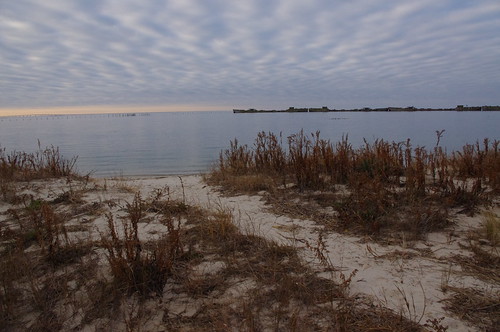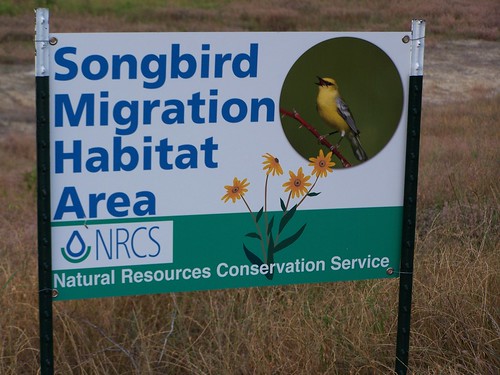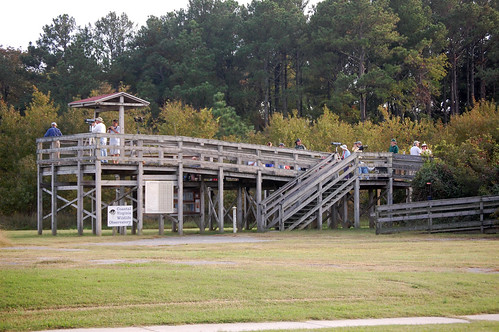Do you know what the Atlantic Flyway is? How is a bird like a tourist in Virginia?

Kiptopeke State Park

Virginia is for the birds!

Virginia Places.org says: All birds don't fly into Virginia in the Spring and leave in the Fall – but that's pretty much what happens around Hudson Bay in Canada. When the weather gets tough, the tough get going… south. That's where there's food, unfrozen water, and warm sunshine.
The US Fish and Wildlife Refuge has this information for you "Bird Migration Routes" in pdf:
Many North American birds come to the far northern regions of the continent in summer to reproduce and raise their young. Long summer days in the north produce an abundance of insects and plants for birds and their young to eat. Because this food is not available during cold, winter months, many birds migrate south to forage in warmer climates.
These birds follow migratory routes, called flyways, between their northern breeding grounds and southern wintering areas. There are four major flyways in North America: the Pacific, Central, Mississippi and Atlantic Flyway.
Learn more about Birds of Virginia here.
Here is a bird checklist with map of National Wildlife Refuges in Virginia from the USGS.
A couple popular Virginia State Parks for birders are:
Kiptopeke State Park
GENERAL INFO:Kiptopeke Birding Areas– Since 1963, Kiptopeke has been the site of bird population studies. Sponsored by theMap with driving directions here.
False Cape State Park
GENERAL INFO:No vehicular access. Located in southern Virginia Beach, False Cape State Park is a mile-wide barrier spit between Back Bay and the Atlantic Ocean. Access is through the Back Bay National Wildlife Refuge and is limited to hiking, bicycling or boating. The park features primitive camping and an extensive environmental education program in one of the last undisturbed coastal environments on the East Coast.
In the 1800s, False Cape gained a reputation as a ship’s graveyard. The area got its name because its land mass resembled Cape Henry, luring boats into shallow waters. One of the area’s first communities, Wash Woods, was developed by survivors of such a shipwreck. The village’s church and other structures were built using cypress wood that washed ashore from a wreck.
Vehicular access to False Cape State Park is prohibited because the park is land-locked on the southern end of the Back Bay National Wildlife Refuge. Map with directions here.
See the Facebook page for other opportunities.
Coastal Virginia Wildlife Observatory Blogs of interest:
If I have piqued your interest in Birding and you want to learn more about it, visit the website for the Virginia Society of Ornithology here. You can find a local chapter near you, get information about field trips and more.
Another group that is involved in Birding is the basic training and get involved!
